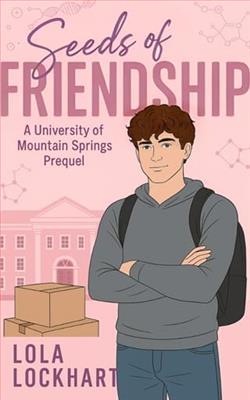Page 25 of A Shimla Affair
‘Well, since you ask …’ I hurtled towards a long-winded description of the hotel and its travails, and the struggles of finding film screenings.
He listened politely for a while, but I could see him getting more and more impatient.
The train should be close to the tunnel by now, and I hoped everything would go by plan. What if they failed to accurately identify the correct train? Or what if the explosives didn’t detonate on time and trigger the landslide in the tunnel?
‘Madam, can I help you with something?’ Singhji asked.
I sighed. ‘Actually, yes. I was here some weeks ago to talk about this Indian woman who used to work for us, not any more of course … Begum Jaan, you know, theQueen of Spies.’
He nodded. I cleared my throat before speaking more, hoping to appear hesitant.
‘I’m sure you heard all about that nasty protest business at the hotel. But we swear, Singhji, we had nothing to do with it. I know Begum Jaan has not been seen since the incident, and I know you all are looking for her, and I just wanted to share some insights.
‘I wasn’t sure whether to come to you, Singhji. As you might remember, I had earlier begged you to save her, I had been fooled by her playing the part of the poor, lonely woman … but in fact, Sir—’
I looked around the office as if afraid someone might overhear us ‘—she is not half as helpless. I am sure you may have heard from your men, Sir, that she is a very clever and well-connected woman, always eager to brew trouble. Word on the street is that she is trying to rally the Muslims …’
By now, for sure, Ratan Babu and the others must have approached the train. How quickly would the train guards have realized that something was amiss, and how fast would they have responded? They would be surrounded by chaos and confusion. The train compartments would have been broken free by now.
‘Let me tell you how she came across us …’ I proceeded to narrate our history with Begum Jaan; how we had gotten to know her, the time she had spent at the hotel, our many ups and downs. But soon, I was out of conversation, worried that the message about the attack on the train hadn’t come yet.
I could see the battle on Singhji’s face: the urge to dismiss me versus having to acknowledge and respect the information I brought to him.
‘Singhji, there’s also something else. The area around the hotel has started to feel quite unsafe. The other day I saw movement behind the trees, it was not animals, no, but something sinister. You know what would happen if someone was spying on the guests? We would be arrested Singhji!’
‘I highly doubt—’
‘No, it’s true! The other side of the forest—you know at the hotel’s back—it is very dense. I have often seen people from the neighbouring villages building their tents there until the guards drive them away. Can I tell you what happened to a hotel guest that one time?’
He sighed. ‘Go on.’
I asked for another chai, saying I had a headache, trying to come up with more stories to fit the occasion. I couldn’t hold out for much longer, sure that at some point Singhji would ask me to leave.
‘There is an urgent message for you, Sahib,’ the peon at the door finally said. Singhji got up, excusing himself. I breathed a sigh of relief.
While he was away, I also stood up and edged closer to the office door, trying to hear what they were talking about. Their voices were panicked. In the chaos, they completely forgot about me, and I saw Singhji give about stressed orders, talking about trouble near Palka, dispatching runners across town. I tried to find out what they were talking about, to see which route the sepoys would take, but it was impossible to understand.
‘What do you want now, Nalini Madam?’
Singhji’s voice surprised me, and I jumped as he spoke.
‘No, nothing I … was someone saying Palka? Singhji, is it possible that, if your sepoys are going there, I could go along? I have some work in a nearby village, but I am afraid to go on my own, the route is very deserted. But if I were accompanied by sepoys—’
‘I’m afraid that won’t be possible. The men are going through the stream, not the forest, and you wouldn’t be able to keep up.’
‘Oh!’
‘If that will be all, I am afraid there is a lot—’
I dashed out of the police station and found a runner in the city to send my message to Afreen:The custards are on the stove. About twenty to thirty I would say, but there might be more. Be careful, the extra topping this time is not the pistachio. It’s rosewater. Take care!
9
People say they love Shimla in the summer, when the grass is lush and green and the sun shines beautifully over its colourful townscape. But I love Shimla when it rains, in its cold and wind, because it makes the hotel more of a safe haven. Its wooden floors then creak louder, reminding you that others are just close by. The firewood crackles merrily, rendering the stormiest of nights warm and cosy. The smell of Afreen’s delicious food wafts constantly through the kitchens and the dining room. And while every time the door opens, a burst of wind disrupts our well-preserved homeliness, at some point, the door shuts again—renewing the air with the scent of pine, making us feel at home.
Ever since we had been asked to leave our house in Bombay five years ago, the hotel had been our only home. When we had first arrived, Noor, holding Afreen and my hands, had taken us for a walk through the forest. She pointed at the mountains in the distance and asked us what we thought of their vastness.
When I looked at them, something moved within the depths of my heart, and I knew this would be home. The peaks promised mystery and at the same time, trust; they shouted that theywould take care of us. The quietness, as opposed to Bombay’s incessant noisiness, brought peace to my mind and I knew, that in some twisted way of the world, we had come home.















